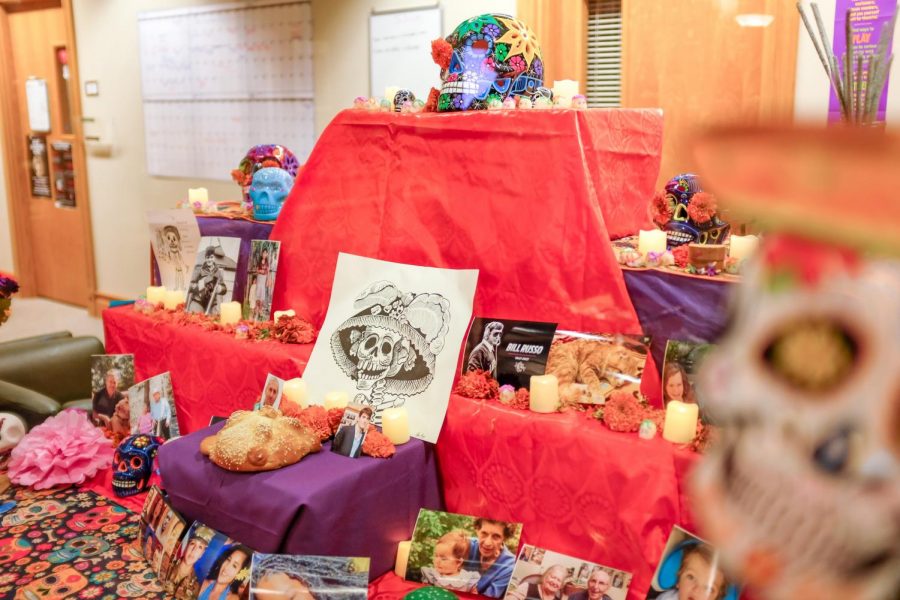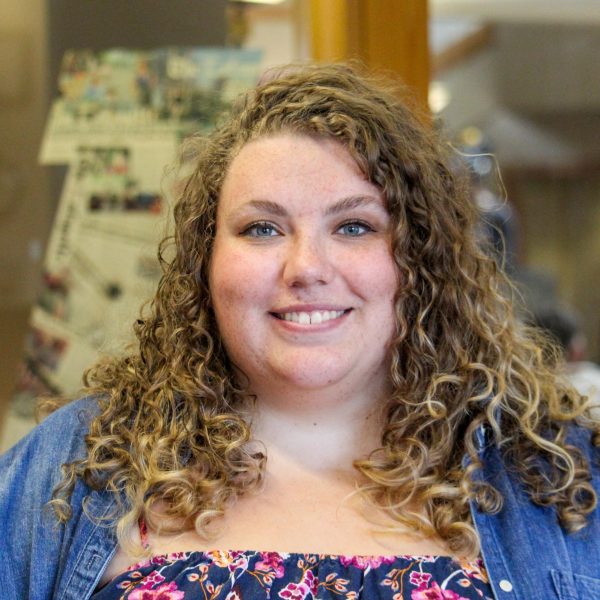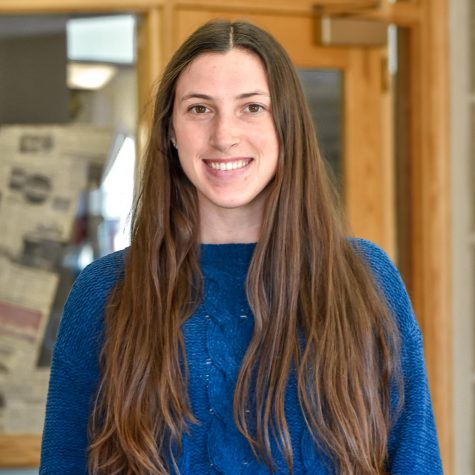Día de los Muertos ofrenda and event bring community together in celebration of life
Photo by Caroline Burns for The Lafayette
The ofrenda in Suite 115 of Farinon Center features the images of deceased loved ones of the Lafayette community and honors their memory. (Photo by Caroline Burns ’22)
November 5, 2021
All students in the Farinon Student Center this past Monday could hear traditional Mexican music flowing out of the Marlo room.
Día de los Muertos, celebrated on Nov. 1 and 2, is a Mexican holiday that remembers the lives of those who have passed on.
“It’s not an exclusive thing to Mexican culture,” Spanish professor Adrian Espinoza-Staines explained. “It originated there but really has become a globalized celebration.”
The celebration revolves around an ofrenda, which is a decorated altar dedicated to the memory of deceased family members.
“It’s the centerpiece of the celebration,” Espinoza-Staines said.
“[The ofrenda is] obviously done differently in different regions of Mexico and elsewhere, but it always has some specific elements, so you always find food, specifically pan de muerto,” he continued.
Pan de muerto, which translates to bread of the dead, is a sweet bread often made in the days leading up to the holiday.
“The bread is an offering to the altar,” Associate Director of Intercultural Development Karina Fuentes, said. “It’s symbolic. You cannot have an altar without the bread.”
“There aren’t any on this one, but you’ll usually also find some alcoholic beverages, and maybe a cigarette or something else that shows how the person was characterized,” Espinoza-Staines said.
Ofrendas are also adorned with marigold flowers.
“The belief is that the smell of the marigold flower draws or guides the way for those who have passed to come visit us on this day,” Espinoza-Staines said.
For Lafayette’s celebration, Espinoza-Staines and his Hispanic Literature and Civilization research seminar in constructed an ofrenda with the help of Fuentes and the Office of Intercultural Development.
For Xiomara Capistran ’22, a member of Espinoza-Staines class, building the altar with her class signifies a full-circle moment in her life.
“My mom used to build an altar, so I knew how it was made. I just never actually did it myself,” Capistran said. “The whole class has led to this moment where now I’m the one building an altar.”
Additionally, a service was held on Monday in honor of those close to members of the Lafayette community that died during the COVID-19 pandemic.
“Here on campus, we wanted to reflect these crazy times that we’ve lived through: the pandemic and how many individuals here at Lafayette have lost so many,” Fuentes said.
The service began with a slideshow featuring pictures and descriptions of loved ones that students submitted. A performance by singers sporting traditional Día de los Muertos skull masks and costumes followed as those in attendance enjoyed pan de muerto and Mexican hot chocolate.
The idea for an event like this began in 2019, when Rachel Raudales ‘21, a student of Espinoza-Staines, wanted to organize a Día de los Muertos celebration.
“Rachel was in my class then and wanted to celebrate [Día de los Muertos] as I was doing a midterm about it,” Espinoza-Staines said. “Karina [Fuentes] also wanted to celebrate, but Karina and I didn’t know each other, so Rachel put us together. It has always been students at the center of this.”
To Espinoza-Staines, Día de los Muertos can be a celebration that unites the campus community through something every person experiences: the loss of loved ones.
“I invite people to come to these events with an open mind, to celebrate life that means something to them beyond the cultural specificity of it being a Mexican or Mexican American holiday,” he explained.
“This gathering is revolutionary in the best possible way,” said College Chaplain Alex Hendrickson in her opening remarks at the event. “Instead of being only fearful of death, we can embrace with joy those who have died as stewards of grace. We give thanks for their lives and do our best to honor the relationships they have entrusted to our care.”
“It’s not that we’re not sad or not missing our loved ones,” Espinoza-Staines said. “But it’s more a focus on celebrating them than going through our pain.”
“I think that’s what makes the celebration universal or global,” he continued. “We all have people that have been important to us that have left us, and we would like to remember them fondly and happily instead of the pain they left behind.”
The altar will be assembled in Suite 115 of Farinon Center until Monday, Nov. 8. The display is visible at all times, but it will be open from 9 a.m. to 5 p.m. for anyone to add objects to remember loved ones of their own.



























































































































